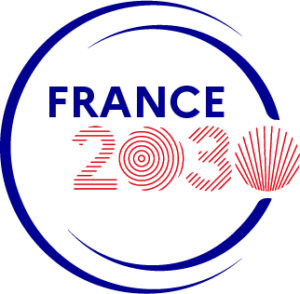- Salle de réunion du 1e étage, LEM3 – site principal, 7 rue Félix Savart, 57070 Metz
Under the aegis of the Medicis programme



Resume
Recent developments integrating micromechanics and neural networks offer promising paths for rapid predictions of the response of heterogeneous materials with similar accuracy as direct numerical simulations. In this talk, I will be discussing a relatively new approach for simulating the thermo-mechanical behavior of heterogeneous materials using accurate and fast reduced order models, namely the deep material network. The deep material network incorporates principles from micromechanics directly into the network architecture as its fundamental building blocks to achieve faster and more accurate predictions compared to traditional homogenization methods. Unlike standard multilayer perceptron approaches, weights and biases represent the mechanical interactions between the material components in the deep material network architecture. By leveraging micromechanics analytical solutions within the network building blocks, the architecture of the deep material network has some analogies with direct numerical simulation. In this talk I will be walking you through how to construct such networks, discuss issues on interpretation of this « glass » box approach, give example on how this approach can be used to predict the thermomechanical properties of composites, and finally how this approach can be extended to address other problems such as thermal conductivity problems.
Sandia National Laboratories is a multi-mission laboratory managed and operated by National Technology and Engineering Solutions of Sandia, LLC., a wholly owned subsidiary of Honeywell International, Inc., for the U.S. Department of Energy National Nuclear Security Administration under contract DE-NA0003525.
About the speaker
Dr. Remi Dingreville is a Distinguished Member of the Technical Staff at Sandia National Laboratories. Dr. Dingreville holds a Ph.D. in Mechanical Engineering from the Georgia Institute of Technology in Atlanta GA. Dr. Dingreville joined the technical staff at Sandia in 2011 where his research is at the intersection of computational materials and data sciences to understand and characterize process-structure-properties for materials reliability across scales. He leads a few research programs at Sandia focused on the discovery of resilient materials and manufacturing processes via AI-guided approaches. He has published over 120 peer reviewed articles on these topics. Dr. Dingreville is received several senior visiting scientist fellowships at CNRS in France and he is the past recipient of the TMS Materials Processing and Manufacturing Division « Young Leader Professional Development » award.
To attend on teams
It is also possible to attend the seminar on Microsoft Teams.





